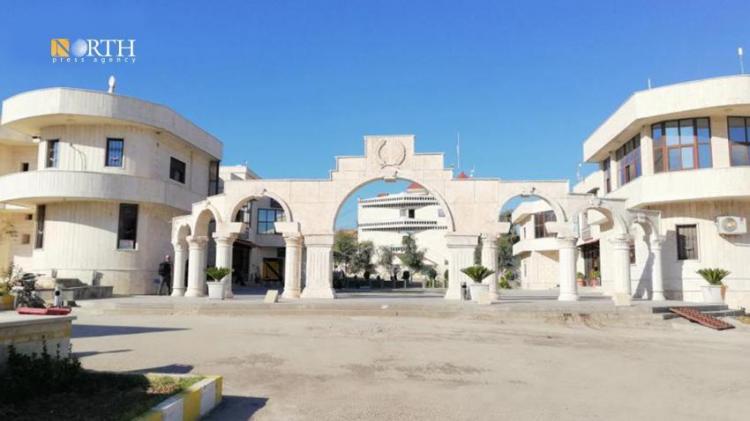Autonomous Administration of NE Syria allows commercial movement to mitigate Caesar Act
RAQQA, Syria (North Press) – “Commercial movement will continue through crossings to reduce the consequences of the Caesar Act, while closing it to the non-commercial movement as part of the precautionary measures to confront coronavirus.” Berivan Khalid, co-chair of the Executive Board of the Autonomous Administration, said on Monday.
On Sunday, the Autonomous Administration of North and East Syria announced a new set of preventative measures to limit the spread of coronavirus, including the closure of all border crossings.
Khalid added in a statement to North Press that “keeping commercial movement in the crossings will help mitigate the impact of Caesar Act sanctions, because stopping it will contribute to a worsening economic situation."
The Caesar Act, also known as the Caesar Syria Civilian Protection Act, became law in the United States in 2019. The Act entails a series of sanctions aimed at targeting the Syrian government and any individuals or states which aid it. The act was named after a defector from the Syrian intelligence services, a military photographer codenamed Caesar, who submitted about 55,000 photos documenting the massacres and war crimes committed by Syrian security services against civilians and demonstrators in Syria since 2011.
The Syrian pound witnessed a sharp collapse against the US dollar at the end of June, as the exchange rate of the dollar reached 3,500 Syrian pounds.
The co-chair of the Executive Board stated that a number of health and sanitation measures will be taken within the crossings, including sterilization of materials and their quarantine for a maximum period of 24 hours.
North and East Syria imports a large part of its foodstuffs from the Syrian interior and the Kurdistan Region of Iraq, both of which are witnessing an increase in the number of coronavirus infections.
Northeast Syria registered three cases of coronavirus, one of which died, while the other two recovered, according to the Health Board of the Autonomous Administration.
(Reported by Hosheng Hessen, editing by Lucas Chapman)

